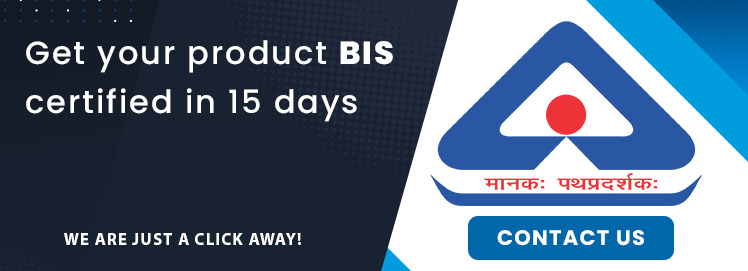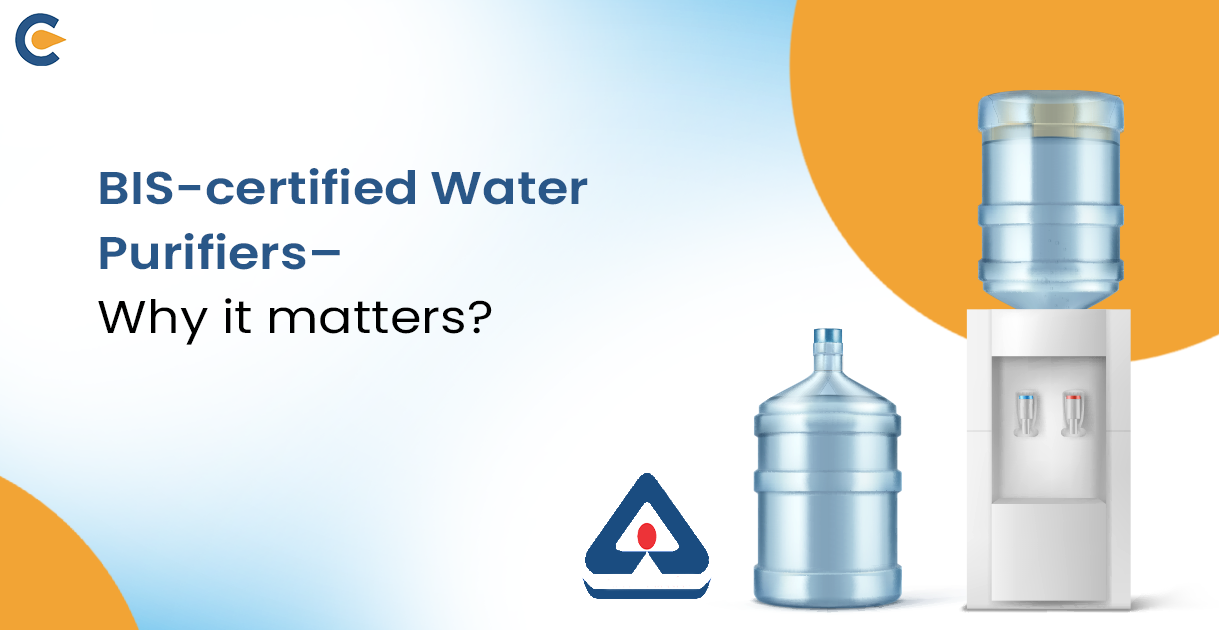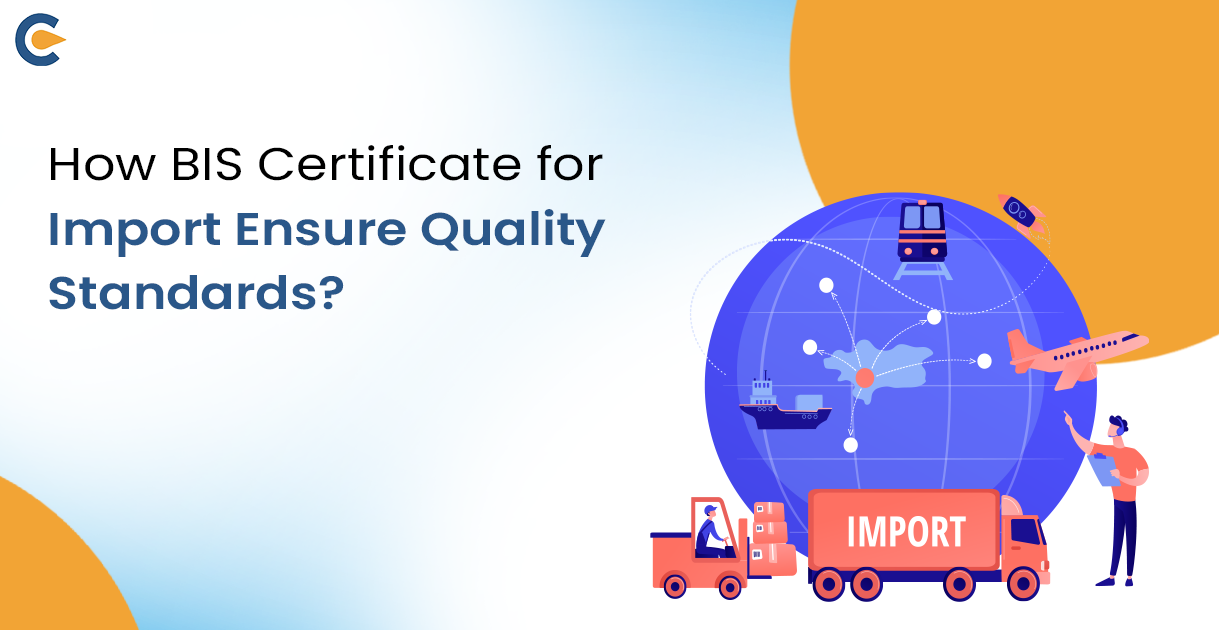The Indian economy is the fastest-growing in the world and possesses the qualities needed to compete with the biggest global economies. More trade is now feasible as a result of globalization in industries like manufacturing, services, international sales of goods, and import-export.
Without a standard quality and recognized product, it is difficult to survive in the market in this cutthroat environment. The use of standard ISI may additionally require a BIS license. Market your goods and sell them in India.
To obtain BIS for nuts and boltsand produce a standard quality product, the manufacturer must ensure that their product must comply with the specified Indian standard.
BIS standard mark for nuts and bolts
The BIS is an organization that controls and promotes national standards for Indian goods and products. To analyze product samples during the preliminary and surveillance activities, the BIS established eight central, four regional, and three branch laboratories in India. BIS-registered items follow a set of specifications during production, guaranteeing top-notch standards. Users can get trust by using devices that are registered with BIS because they consistently and excellently work. One of the largest in the world, the Indian BIS Product Certification Scheme has over 26500 licensees who cover more than 900 products. BIS Certification enables licensees to use the renowned ISI mark on their product, which is associated with items of superior quality.
The BIS Standard Mark, also known as the ISI Mark, has the Licence number as ‘CM/L-XXXXXXXXXX’ at the bottom. The Bureau of Indian Standards will grant this mark upon the successful issuance of the BIS Certificate.
About the BIS Act of 2016
The Bureau of Indian Standards Act, 2016, establishes a national standards body to ensure the consistent growth of standardisation, conformity assessment, and quality assurance activities for products, articles, processes, systems, and services, as well as for matters related to or incidental to those activities. (As defined by the Act).
The BIS has formed some standards for nuts and bolts
The standards are as follows:
- IS 1363 – 1967: Black hexagon bolts, nuts & lock nuts ( 6 – 39 mm)
- IS 1367 – 1967: Technical Supply Conditions for threaded fasteners
- IS 4260 – 1967: Dimension of lengths and thread lengths for bolts, Screws and Studs
- IS 4172 – 1967: Dimension of redials under the head of bolts and nuts etc.
- IS 6623 – 1972: High tensile friction grip nuts, etc
Packing and making
According to IS 10238: 2001, a licence is given to use the Standard Mark. According to IS 10238: 2001, labelling and marking must be done. Packaging for step bolts must follow IS 1367(Part 18). The Standard ISI Mark should appear on every piece of output that complies with Indian Standards and is covered by the licence.
The producer must receive a BIS licence[1] for bolts for Steel Structures from the Bureau of Indian Standards in order to use a standard mark. Bureau issues a BIS licence following a satisfactory evaluation of the production process, quality control and testing capabilities, and manufacturing infrastructure. Step bolts for steel structures must have a BIS licence in order to guarantee customer safety and dependability.
What are the basic requirements for the BIS ISI Certification process?
The requirements for obtaining a BIS licence for hot-rolled steel sheets are listed below.:
• The product must meet the standards of the Indian Standard Specification.
• A BIS licence is only valid for factories that produce completed goods. The Distributor/Retailer does not receive it.
• If a firm has many factories, each of which is located at a distinct geographic region, each plant site must submit a separate application.
• To test the product in accordance with the applicable ISS, the laboratory should be fully furnished with product testing machinery and qualified quality control employees.
• All production and testing equipment must be situated on the plant grounds in accordance with ISS guidelines and the relevant SIT.
• “Product Manuals” with technical specifications are available for all products covered by the Product Certification Scheme. All sampling guidelines, a list of test instruments, a Scheme of Inspection and Testing (SIT), a description of the scope, and other details are included in the manual.
• By using this Product Manual for BIS ISI Certification, applicants can reduce their chances of being turned down by using it to prepare for the audit and application submission.
The certification process of BIS for nuts and bolts
The ISI Mark Certification process for nuts and bolts in India consists of the following steps:
1. Selection of pertinent product codes
2. Completed online ISI Mark Registration application form with the required documentation
3. Factory inspection by a BIS-approved auditor
4. Submission of a Sample Report by a BIS-approved laboratory
5. Licences granted by the BIS Authority
Furthermore, two distinct processes can be used in India to obtain BIS certification for nuts and bolts:
- Normal Procedure (which takes uptotakes 60 days – 65 days)
- Simplified Procedure (which takes uptotakes 35 days – 40 days)
Normal Procedure
The following procedures will be taken as part of the standard process to obtain BIS certification for nuts and bolts:
1. The applicant must first prepare for the BIS Certificate requirements, largely by establishing in-house labs and producing items in compliance with Indian Standards, as well as completing the essential documents.
2. A BIS officer, in collaboration with the producer or industry, will inspect the product and the industry.
3. Following the completion of the inspection, sealed samples of the products are submitted to BIS-approved labs for testing.
1. The BIS will only approve a product if it passes all of the test parameters. Finally, the authority grants the BIS certificate to Indian manufacturers within 60 to 65 days of the application’s submission.
2. It is only after clearing all test requirements that it is approved by the BIS. A BIS certificate is typically issued 60 to 65 days after the application is submitted.
Simplified Procedure
The following procedures will be taken as part of a simplified approach to obtain BIS certification for hot-rolled steel sheets:
1. The applying party must first provide a report on the samples that have already been evaluated and authorised by BIS in compliance with Indian Standards.
2. The candidate must next submit a BIS online registration form together with the BIS Certification fee and other required papers.
3. During the application assessment process, the BIS official will inspect products alongside the factory/industry.
4. Following the completion of the inspection, sealed samples of the products are submitted to BIS-approved labs for testing.
5. It is only after clearing all test requirements that it is approved by the BIS. A BIS certificate is typically issued 35 to 40 days after the application is submitted.
What is ISI Certification?
The Indian Standards Institute, or ISI, is the BIS (Bureau of Indian Standards) certification process that attests to a product’s conformity with BIS standards and safety.
ISI Certification is a compliance that certifies product quality, enhancing consumer confidence and protecting them from health and safety risks. ISI Certificates are sometimes referred to as BIS Certificates because they are issued by BIS in India. In India, medical equipment makers must obtain ISI certification.
Documents required for ISI Certification in India
- The registered address of your production unit, along with a copy of the registration certificate;
- A copy of test reports from a BIS-approved laboratory; • A list of all the testing equipment utilised on your premises;
- A copy of the manufacturing process flow chart;
- A copy of government-issued identification documents;
- A copy of your registered trademark;
- Copies of all utility bills.
What is FMCS (Foreign Manufacturers Certification Scheme)?
Since 2000, the Bureau of Indian Standards has managed the FMCS (Foreign Manufacturers Certification Scheme) for foreign manufacturers in compliance with Scheme-I of Schedule-II of the BIS Act, 2016 and the (Conformity Assessment) Regulations, 2018. This system allows international applicants and manufacturers to sell their goods in India using the standard mark, commonly referred to as the ISI Mark. Only the FMCD, or Foreign Manufacturers Certification Department, is licenced to provide BIS Certificates for import. The fundamental purpose of BIS in giving Manufacturing Certificates to Foreign Manufacturers is to ensure that the public receives high-quality, dependable, safe, and risk-free products. The BIS FMCS Certificate validates that manufacturing facilities, especially those located abroad, adhere to all BIS-specified requirements. In addition, foreign applicants must name an Authorised Indian Representative (AIR).
As a result, international producers must get a BIS Certificate for Import in India under the FMCS Scheme in order to continue exporting and selling their goods in the Indian market.
Documents required for FMCS Certification in India
The documentation required to receive FMCS certification for nuts and bolts are listed below:
- Your factory’s registration paperwork
- A copy of the manufacturing process flow chart
- Manufacturing capabilities in-house as well as a manufacturing outsourcing agreement
- Specifics about the testing facilities on your premises
- Specifics about your facility’s quality control parameters
- Laboratory test results.
Process of granting of BIS licence for nuts and bolts under FMCS
The FMCS BIS certification procedure consists of the following systematic processes that will aid in the grant of an FMCS licence for hot-rolled steel sheets:
- Submit the application:
- Compile all required documents
- Submit the application with the required documents to BIS online and hardcopy to the FMCD department
- BIS authority will verify the application.
- Acknowledgement number will be issued to the applicant for future purpose.
- Audit/Inspection:
- The BIS officer will schedule a visit to the applicant’s factory.
- The applicant has to pay the inspection/audit fee
- After this BIS Officers will inspect the production line, the testing facility, and the product in your in house lab.
- Finally the BIS officer will take the sample, seal it, and send it to an independent laboratory for examination.
- Sample Testing:
- The sample collected will be sent to BIS Approved Laboratory
- BIS (FMCS) will receive the test report
(Note: Charges for testing will be paid by the applicant).
- Grant of Licence:
- Applicant should pay a licence fee, advance minimum marking fee and outstanding due (if any)
- Finally the letter for grant of licence will be issued.
Recent amendment
The Indian government recently announced obligatory quality standards for nuts, bolts, and fasteners in order to reduce imports of substandard goods and increase domestic manufacturing of these products.
On July 21, the Department for Promotion of Industry and Internal Trade (DPIIT) issued a notification in this regard.
According to the notification, articles covered by The Bolts, Nuts, and Fasteners (Quality Control) Order, 2023, are not permitted to be manufactured, sold/traded, imported, or stored unless they bear the Bureau of Indian Standards (BIS) mark.
According to the BIS Act of 2016, it is now illegal to manufacture, store, or sell non-BIS-certified items. For the first offence, violating a provision of the BIS Act can result in imprisonment for up to two years or a fine of at least INR 100,000. In the case of a second or subsequent offence, the fine will be increased to a minimum of INR 5 lakh and can reach ten times the value of the commodities or articles.
Conclusion
It is difficult to thrive in this competitive market without standard quality and verified goods. To utilise the standard ISI Mark and sell items in the Indian market, a BIS licence may be necessary.
To achieve BIS certification and develop a high-quality product, the company must confirm that their product meets the Indian standards.
Frequently asked questions
When comparing deadlines against dates that have been announced, the date of manufacturing for goods made domestically and the date that consignments arrive in India for goods made abroad would apply.
The Standard Mark must be applied to both the product and the packaging, but if size restrictions make it impractical, it may only be applied to the packaging. E-labelling facilities are also available for products with displays.
It is necessary to register each brand separately. However, if the product and the manufacturing location are the same, it is possible to do so based on a shared test result.
No brand-specific test samples must be submitted. However, the test report must include the product labels for the individual brands. Based on the sample model that was tested and the manufacturer’s declaration on various brands and associated model numbers, the lab may also make a statement about the coverage of this brand and the associated model numbers that will be covered.
The products must be registered with BIS by the maker or its authorised Indian representative.
Read Our Article: BIS Certification For Fortified Rice Kernels: Ensuring Nutrition













